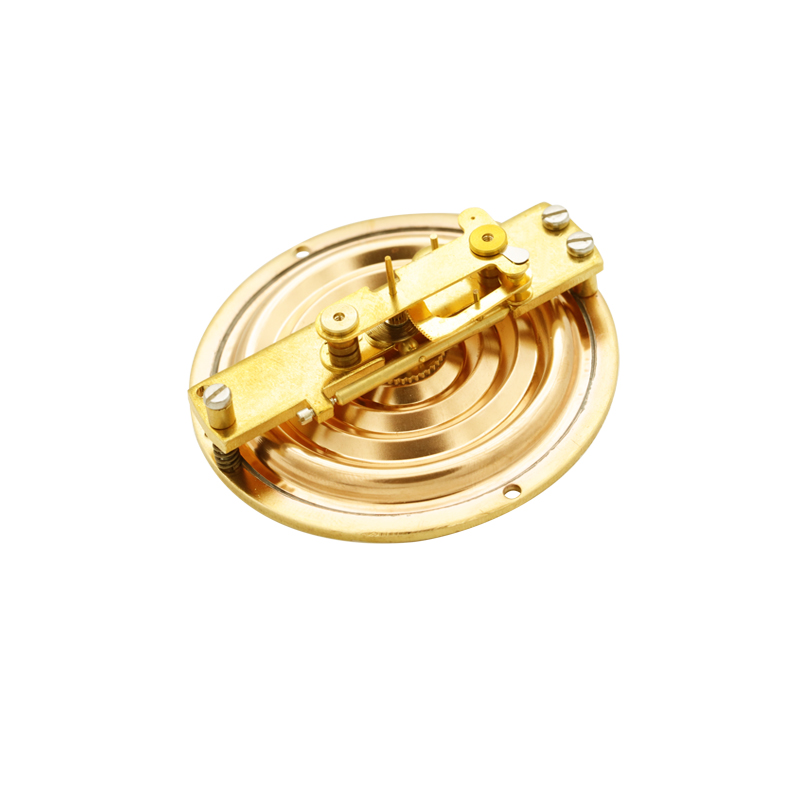
Nov . 26, 2024 08:43 Back to list
differential pressure gauge psi service
Understanding Differential Pressure Gauge PSI Service A Comprehensive Guide
In various industrial applications, differential pressure gauges play a crucial role in measuring pressure differences between two points, providing essential data for system performance analysis and control. Among the various units of measurement used in these gauges, PSI (pounds per square inch) is one of the most commonly utilized, especially in the United States. Understanding how differential pressure gauges function, their applications, and service requirements is vital for anyone involved in process engineering, maintenance, or quality control.
What is a Differential Pressure Gauge?
A differential pressure gauge is an instrument designed to measure the pressure difference between two reference points. It consists of two pressure ports; one port measures the pressure of the fluid in one location, while the other measures the pressure in another location. The gauge then displays the difference between these two pressures, which is crucial for monitoring system health, fluid flow, and filter conditions.
Importance of PSI Measurement
PSI is a standard unit of measurement in the United States for expressing pressure. Differential pressure gauges that use PSI are important in numerous applications, including HVAC systems, fluid mechanics, and process industries. By measuring the pressure difference accurately, these gauges can help operators and engineers diagnose issues, optimize performance, and enhance safety. For instance, in HVAC systems, monitoring the differential pressure across air filters can predict when filters need replacement, ensuring efficiency and preventing airflow issues.
Applications of Differential Pressure Gauges
1. Fluid Flow Monitoring In systems where fluid movement is critical, such as pipelines and chemical processing plants, differential pressure gauges are used to monitor flow rates by measuring the pressure difference across an orifice or flow meter.
2. Filter Monitoring In air and liquid filtration systems, differential pressure gauges indicate the condition of the filter. A rise in differential pressure often suggests that a filter is becoming clogged and requires cleaning or replacement.
3. Level Measurement These gauges can also be deployed in tanks where the pressure at the bottom reflects the height of the liquid column. By measuring this pressure, operators can determine fluid levels reliably.
differential pressure gauge psi service

Service and Maintenance
To ensure differential pressure gauges perform optimally, regular service and maintenance are essential. Here are some key points to consider
- Calibration Periodic calibration is crucial for accuracy. Gauges should be tested against a known reference to ensure they are providing correct readings.
- Cleaning If a differential pressure gauge measures fluid with particulate matter, sediment may build up, impairing its functionality. Regular cleaning and maintenance help avoid this.
- Visual Inspection Inspect the gauge for physical damage or wear and tear. Cracked faces, loose fittings, or corrosion can significantly affect performance.
- Environmental Considerations Ensure that the gauge is suitable for the environmental conditions it is exposed to, including temperature ranges and potential corrosive effects of the fluids being measured.
Conclusion
A differential pressure gauge operating in PSI service is an indispensable tool across a variety of industries. By providing critical information regarding pressure differences, these gauges help maintain systems’ efficiency and safety. Understanding their applications and maintenance needs is essential for ensuring they operate correctly and provide reliable data. Whether monitoring fluid flow, detecting filter conditions, or ensuring optimal operation in HVAC systems, the proper usage of differential pressure gauges contributes significantly to effective system management and industrial productivity.
-
High-Precision 5 Valve Manifold Differential Pressure Gauge Suppliers
NewsApr.29,2025
-
High-Precision Diaphragm Vacuum Pressure Gauges Manufacturers & Quotes
NewsApr.29,2025
-
Omega Differential Pressure Gauges High Accuracy & Durability
NewsApr.28,2025
-
Low Pressure Differential Pressure Gauges Precision Solutions & Quotes
NewsApr.28,2025
-
Digital Diaphragm Pressure Gaauge Precision Measurement & OEM Quotes
NewsApr.28,2025
-
Differential Pressure Gauge China Price High-Accuracy & Best Quotes
NewsApr.28,2025
